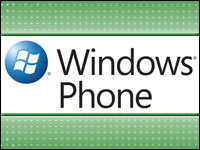
Just weeks after AT&T announced that it would be phasing out unlimited data plans for mobile phone customers, rumors are swirling that Verizon may follow suit. The catalyzing factor could be the launch of the Motorola Droid X, which is widely considered to be Verizon’s answer to the iPhone.
The Droid X brings many of the data-intensive elements of current-generation smartphones to the Verizon network, including video streaming, a wide range of music apps, and social networking. Many can be used over WiFi where it is available, but a primary marketing promise of the new generation of smartphones is the ability to use these apps over 3G mobile networks.
Unfortunately, the real victim of tiered data plans may not be the consumers paying the mobile bills but innovation in applications, Carl Howe, director with Yankee Group, told the E-Commerce Times.
“I may want to have an app that provides full-motion video of my babysitter at home eight hours per day,” he said, “but I may not be willing to pay for it over 3G.”
Who’s Surprised?
While AT&T did not directly say so, it is likely that the rapid rise in data usage attributed to the iPhone and its many mobile Web apps was responsible for the company’s introduction of separately priced data plans.
AT&T insisted that the change was to make mobile data “more affordable” to a greater number of customers; however, iPhone customers long had been required to sign up for unlimited data as part of their initial contract package, so that argument didn’t hold much water.
Verizon is expected to use the same rationale, arguing that a big surge in data attributable to Droid X users is forcing the company to introduce a greater range and, more specifically, tailored data plans.
Customers presumably will have no choice other than to buy the tiered-data packages, but they’re not likely to buy that argument. Some are already anticipating it and wondering out loud why a company that has been buying broadcast and billboard space to tout the fact that “Droid Does Apps” would be surprised that customers would, in fact, use those apps and thus consume much greater volumes of data transmission.
For example, commenter Vrmithrax responded to a Dvice post about the Verizon rumors by saying, “So, just to recap…Verizon pushes the Droid brand heavily, with every single commercial touting how much data and stuff OTHER than calls you can do with these units, then when the X comes out they are surprised by the amount of data usage and considering capping things soon.”
Follow the Leader
In fact, Droid X users likely will behave much in the way iPhone users have. The iPhone has created a demand for the kind of applications first introduced on that platform, such as streaming media, Alex Spektor, analyst with Strategy Analytics, told the E-Commerce Times.
The Droid X is seen as the alternative for those craving an advanced smartphone with app capability but unwilling to switch carriers to AT&T. It comes as little shock, then, that the carrier rolling out the Droid X would encounter the same issues as the one that has been dealing with the iPhone for several years.
What may surprise the industry, though, is the fact that tiered data plans could introduce “a real damper on the business side” of innovations on smartphone platforms.
“Subscription music has been a service that’s been promised for most of the decade now,” he observed. “This may be the nail in that coffin.”
Another casualty of capped data plans may be the model of mobile advertising currently used within apps on smartphone platforms. If a users have to pay to click through to an ad offered on an application screen, they may think twice.































































Social Media
See all Social Media